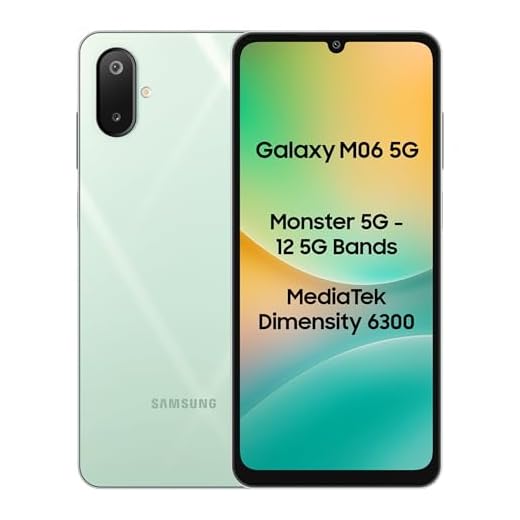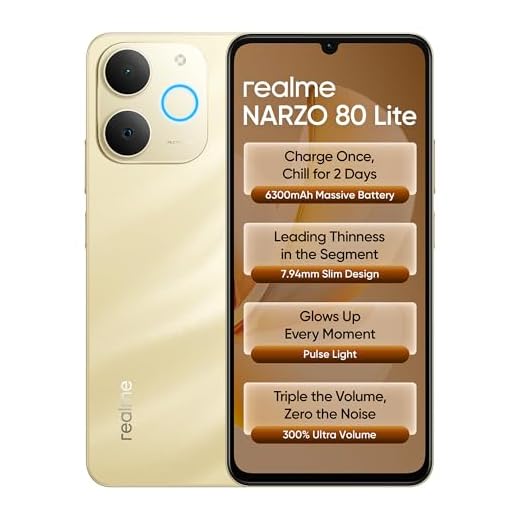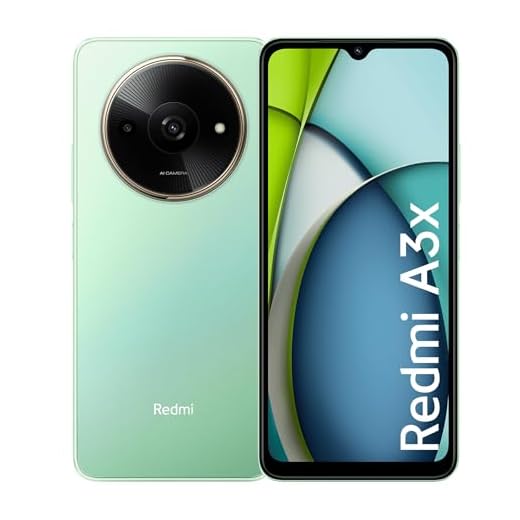So, this is the Ai+ Pulse — currently India’s cheapest smartphone.
I’ve been using this device for almost two months, and honestly, after long-term testing, my overall experience hasn’t been that great. Sure, the phone gets a few things right, but the big question is — is it actually worth buying? That’s exactly what we’ll find out in this review.
I’m calling it the cheapest smartphone because its base variant starts at just ₹4,999, and during sales with bank discounts, you can even grab it for around ₹4,500. Even the 6GB RAM version is priced lower than most phones in this range, making it the most affordable 6GB smartphone you can buy right now.
I’ve actually uploaded another video earlier about the Ai+ brand, where I talked about some of the biggest issues with their smartphones — especially their misleading marketing and overall build quality problems.
If you haven’t watched that yet, definitely check it out after this video — it’ll give you a clearer idea of why this brand still has a lot to prove.
Ai Plus Pulse Specifications
| Display | IPS LCD / TFT, 6.75 inches (6.7″) |
| Screen Resolution | 720 x 1600 pixels (HD+), 90 Hz, 450 nits (typical) |
| Processor | Unisoc Tiger T615 (UMS9230E T7250) |
| GPU | ARM Mali-G57 MP1 @850 MHz |
| Operating System | Android 15 |
| Custom UI | NxtQuantum OS (NxtQ OS) |
| RAM Options | 4GB, 6GB |
| Storage Options | 64GB, 128GB |
| Expandable Storage | Yes, microSD up to 1TB |
| Rear Camera | 50MP (Primary/Wide) |
| Front Camera | 5MP |
| Battery Capacity | 5,000 mAh (Non-removable Li-Po) |
| Charging Speed | 10W Standard Charging |
| Network Support | Dual 4G VoLTE, GSM, UMTS, LTE |
| SIM Type | Dual Nano-SIM (Triple Slot: 2 SIM + microSD) |
| Wi-Fi | Wi-Fi 5 (Dual Band) |
| Bluetooth | Bluetooth v5.0 |
| 3.5mm Jack | Yes |
| Fingerprint Sensor | Side-mounted |
| Dimensions | 167.35 x 77.37 x 8.5 mm |
| Weight | 193 grams |
| Build Material | Polycarbonate/Plastic Back, 2D Glass Front with Oleophobic Coating |
| Color Options | Black, Blue, Green, Pink, Purple |
| Box Contents | 10W Charger, USB Cable, Protective Case |
Ai Plus Unboxing
- Phone
- 10W Charger With USB Type-C Cable
- Transparent Case
- Paperwork

First Impressions – Design & Build Quality
Starting with the first impressions, the design of the AI+ Pulse is on the thicker side. Of course, design is a subjectivething — everyone has their own taste — so I won’t go too deep into that. But one thing I can say for sure is that the build quality is surprisingly good for its price.

At this budget, it feels quite solid and durable, and that slightly bulky feel actually adds to the impression that it’s well-built. In everyday use, it feels comfortable to hold, though the phone is a bit large — but that’s something you’ll find with most budget smartphones in this range. Overall, I didn’t face any issues while using it daily.


One thing that instantly stands out is the headphone jack. Yes, it’s still there — which is a good thing! Since most new phones have dropped it, I still appreciate brands that include it, because for many users (including me), wired earphones still deliver the best audio experience.

Display & Speaker Quality
Talking about the display, the AI+ Pulse comes with a 6.75-inch HD+ TFT panel. It supports up to 450 nits of brightness and even offers a 90Hz refresh rate, which is actually the biggest highlight of this screen.

Now, considering the price, the display looks decent — you can call it “okay” for the money — but definitely not the best in this segment. Other brands in the ₹7,000 range already offer slightly better display quality.
The colors here lean a bit bluish, and outdoor visibility is quite limited because of the low brightness. So overall, I’d say it’s an average display — not terrible, but not impressive either.

The touch response also feels a bit laggy, especially when the phone automatically switches between refresh rates. To make the experience smoother, it’s better to keep it locked at 90Hz, though even then, the overall feel is slightly slow.
Coming to the speaker, the volume output is actually good — it gets loud enough — but the clarity isn’t that great. So, just like the display, the audio quality is below average overall.
Performance
Coming to the performance, the AI+ Pulse is powered by the Unisoc T615 chipset. It’s an average processor, and honestly, in this segment, brands like Realme, POCO, and Motorola offer phones with better chipsets. However, those phones usually come at a slightly higher price.

There are a few phones around the ₹6,000–₹7,000 range that offer better performance, but they typically come with only 4GB of RAM. In comparison, this one gives you 6GB RAM at a similar price — which does make it a good price-to-performance deal overall.
In everyday use, the phone performs fine for light tasks like watching YouTube, chatting on WhatsApp, or making UPI payments. You won’t face any major issues there. But once you start using multiple apps together — for example, Google Maps, Rapido, and Uber at the same time — the phone starts to show its limitations.

The 6GB variant handles things a bit better, but still, this is not a phone meant for heavy multitasking or gaming. If you’re planning to game or do performance-heavy tasks, I’d suggest looking for something with at least a Snapdragon 4 Gen 2 chipset. You can find a few phones with that processor for around ₹8,000, and they offer much better overall performance.
Software & User Interface
The biggest USP of the AI+ Pulse — and probably its only real advantage — is the clean, bloatware-free UI. It offers an experience that’s very close to stock Android. In fact, it feels almost identical to stock Android in daily use.
The phone runs on the company’s own NxtQuantum OS, based on Android 15. What I really liked is that there are no unnecessary pre-installed apps — not even the usual third-party bloatware. Apart from 1–2 basic system apps from AI+, everything else is just the default Android setup, which makes the phone light and responsive.

This clean UI also plays a big role in the phone’s smooth day-to-day performance, since there are fewer background processes consuming RAM and CPU power.
However, the software isn’t perfect. There are still a few minor bugs and glitches, which is common for new smartphone brands and custom skins. The issue is that even after 2–3 months, most of these bugs haven’t been fixed. The company did push one or two small updates, but none of them brought major improvements — which shows that the brand doesn’t seem very serious about long-term software support.
AI+ has promised one major Android update and three years of security patches, similar to what other brands offer. But honestly, I’m a bit skeptical — because over the last two months, they haven’t shown much commitment or progress.

Now, coming to the marketing side, I find their approach a bit misleading. They’ve heavily promoted the “AI” part of their name, but in reality, there are no actual AI features in this phone — not even the basic ones. So, the “AI” tag feels more like marketing hype than a real feature.

They’ve also talked a lot about privacy and data protection. Recently, they introduced something called the NextPrivacy Dashboard, which lets you monitor which apps are using your camera or microphone, and even block or control permissions with one click. It’s a good idea in theory, but in practice, I noticed that some apps crash or stop working properly when permissions are restricted — especially social media or video apps that need camera and mic access.
Also, features like this aren’t unique anymore — Android 15 already offers a system-wide privacy dashboard where users can manually control app permissions and even get real-time pop-up alerts when an app tries to access the mic or camera. So, AI+’s privacy feature isn’t exactly a big innovation.

They also claim that user data is stored only on Indian servers, but in reality, that doesn’t mean much. Most user data on Android phones is still collected and stored by Google and other apps — and that won’t change here. Even if AI+ stores some part of the data locally, it’s a very small fraction compared to what’s handled by Google and third-party apps.
Camera Performance
So overall, while the software experience is clean and refreshing, the privacy and AI marketing claims feel more like a myth than a real advantage.
While the clean, bloatware-free operating system is the AI+ Pulse’s biggest strength, it also comes with a few serious compromises — and the camera is where you’ll feel it the most.

The phone features a single 50MP wide camera on the back. On paper, that sounds decent, but in real-world use, the results are below average.
In daylight, photos are just about acceptable for the price. The colors look fine, but there’s noticeable noise and a lack of detail when you zoom in. Dynamic range is also limited, so bright areas often get overexposed.


When it comes to low-light photography, the camera really struggles. There’s heavy noise, poor exposure control, and very little detail. Even the video recording quality is underwhelming — stabilization is weak, and footage looks shaky and soft.

The portrait mode works fine in good lighting and can deliver usable results for casual shots, but again, the overall image quality remains the same — soft details and average edge detection.

On the front, you get a 5MP selfie camera, and its quality is closer to that of a basic webcam. In bright light, selfies are passable, but details are missing, and noise is clearly visible. In low light, the performance drops sharply — with dull colors and lots of grain.
Check for video quality of back camera and front camera
Overall, it’s clear that the camera system is one of the weakest points of this phone. You can’t expect much in this price range, but even compared to other phones around ₹7,000, the AI+ Pulse falls short. If camera quality is anywhere near the top of your priority list, this phone is definitely not for you.
Battery & Charging
The battery performance on the AI+ Pulse is actually quite decent. It packs a 5,000 mAh battery, which easily lasts a full day with light usage like social media, calling, and messaging. With medium usage, you can expect around 5–6 hours of screen-on time, which isn’t great but not bad either — it’s fairly balanced for this price range.
The good thing is that the company includes a charger in the box, so you don’t have to buy one separately — something that’s becoming rare these days.

The phone supports 18W charging, but the in-box charger is only 10W, which is a bit of a letdown. Because of that, a full charge from 0% to 100% takes around 2.5 to 3 hours, which is on the slower side.
So overall, the battery life is reliable, but charging speed could have been better if they had included a faster adapter.
Connectivity & Heating
The AI+ Pulse handles heat management quite well — there are no noticeable heating issues, even during long usage or while charging. That’s definitely a plus point.
In terms of connectivity, the phone only supports 4G, which is understandable for this price segment. Still, I’d personally recommend spending around ₹1,000–₹2,000 extra to get a 5G phone instead. It’ll be more future-proof, and you’ll get better resale value in the long run.
Worth To Buy Ai+ Pulse Smartphone?
Overall, the Ai+ Pulse is just an average smartphone. Apart from being an Indian brand and offering a clean, bloatware-free, near-stock Android experience, there’s really nothing that makes it stand out.
Yes, the UI feels smooth and clutter-free, which is something only a few brands like Motorola usually manage in this price range — but that clean software experience comes at a cost. The display quality, camera performance, and even day-to-day speed leave a lot to be desired.
In my opinion, it’s not a great value-for-money deal. If you can stretch your budget by even ₹500 to ₹1,000, you’ll easily find better alternatives with stronger performance, brighter screens, and far better cameras.
Also, there are a few new budget smartphones launching soon, so instead of naming specific models right now, I’ll leave my latest recommended picks below — make sure to check those out before deciding.
That’s it for this review — hope it helped you make the right choice before spending your money. 👋
Comparison









Also Read:









